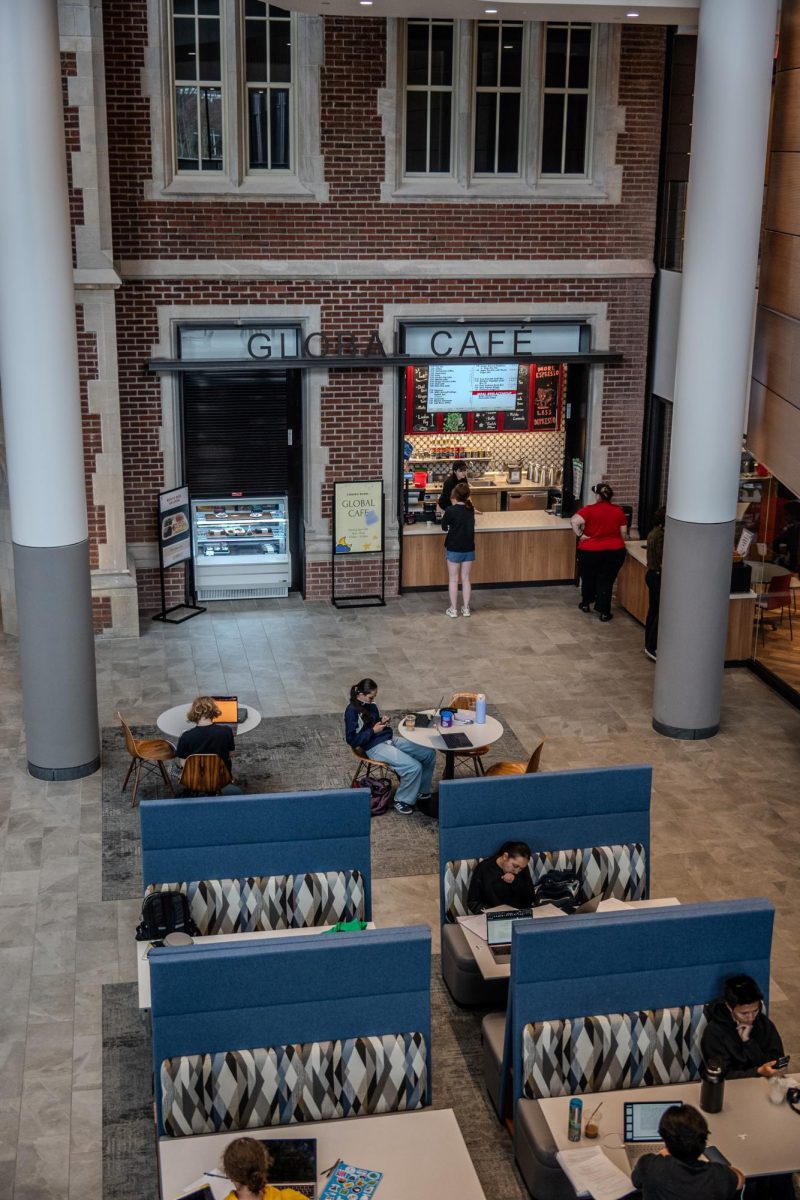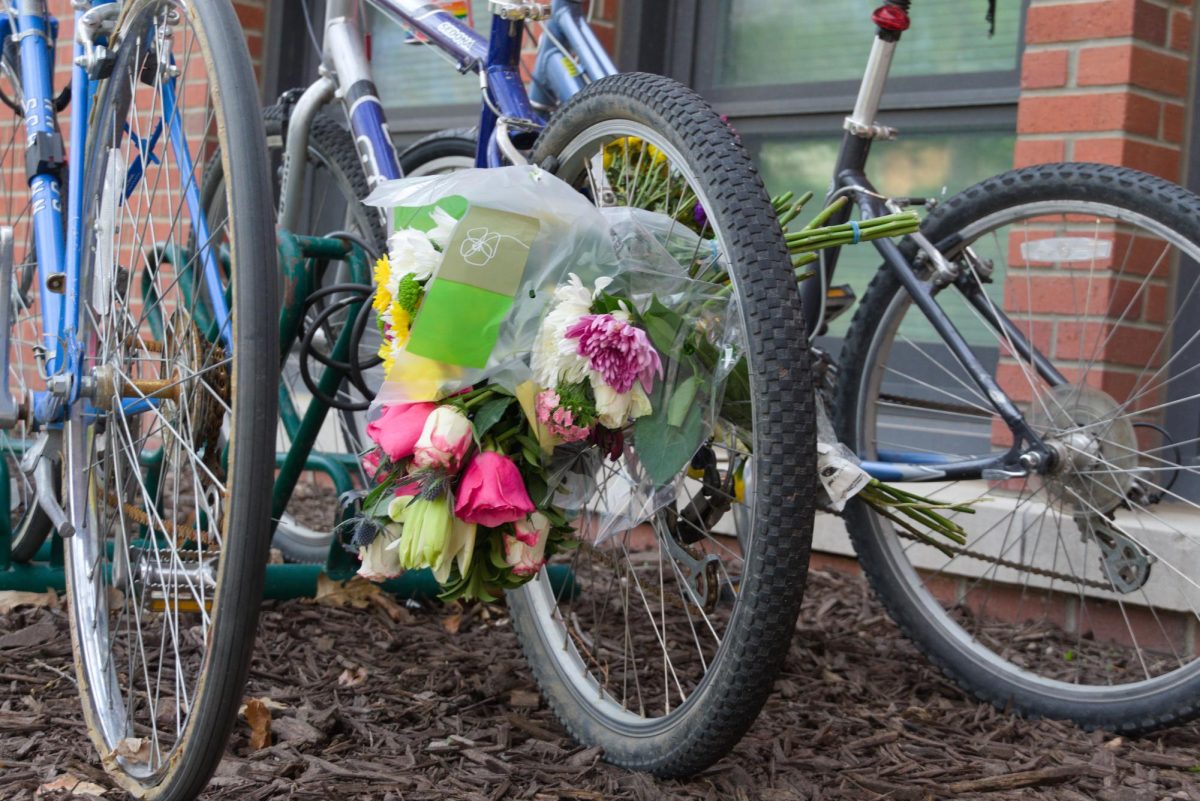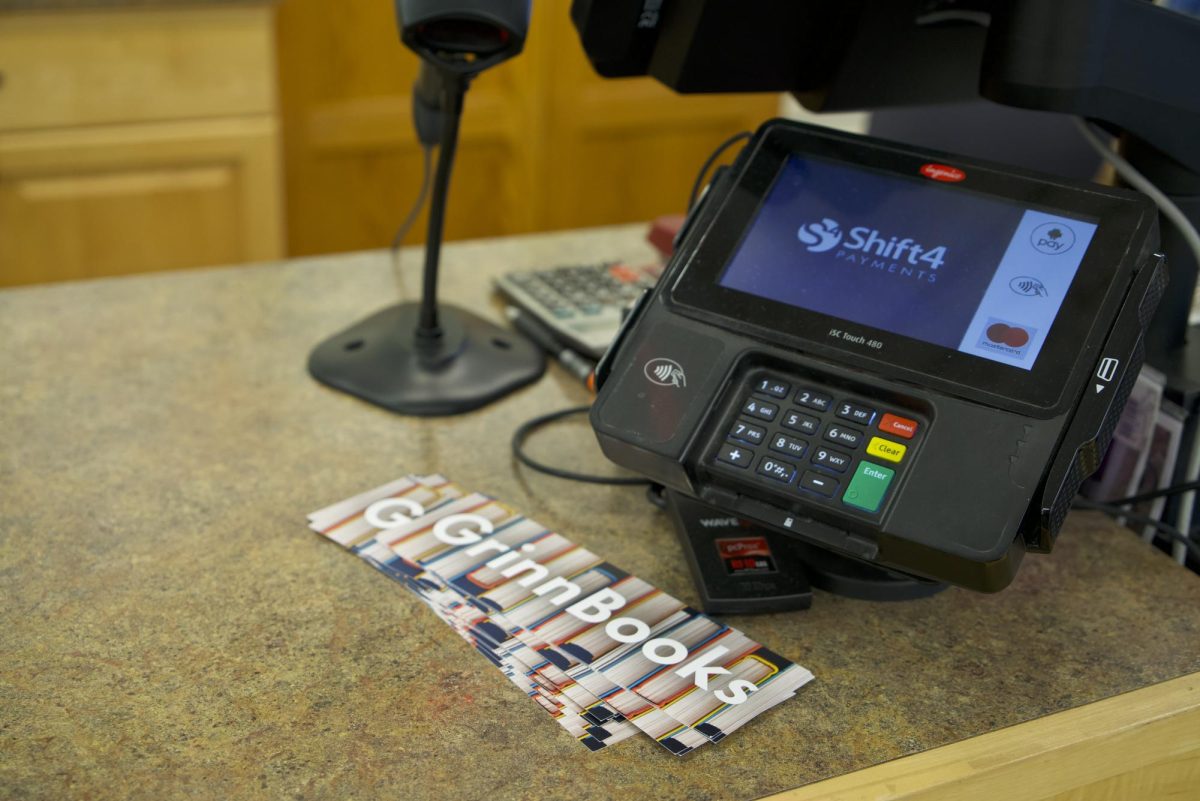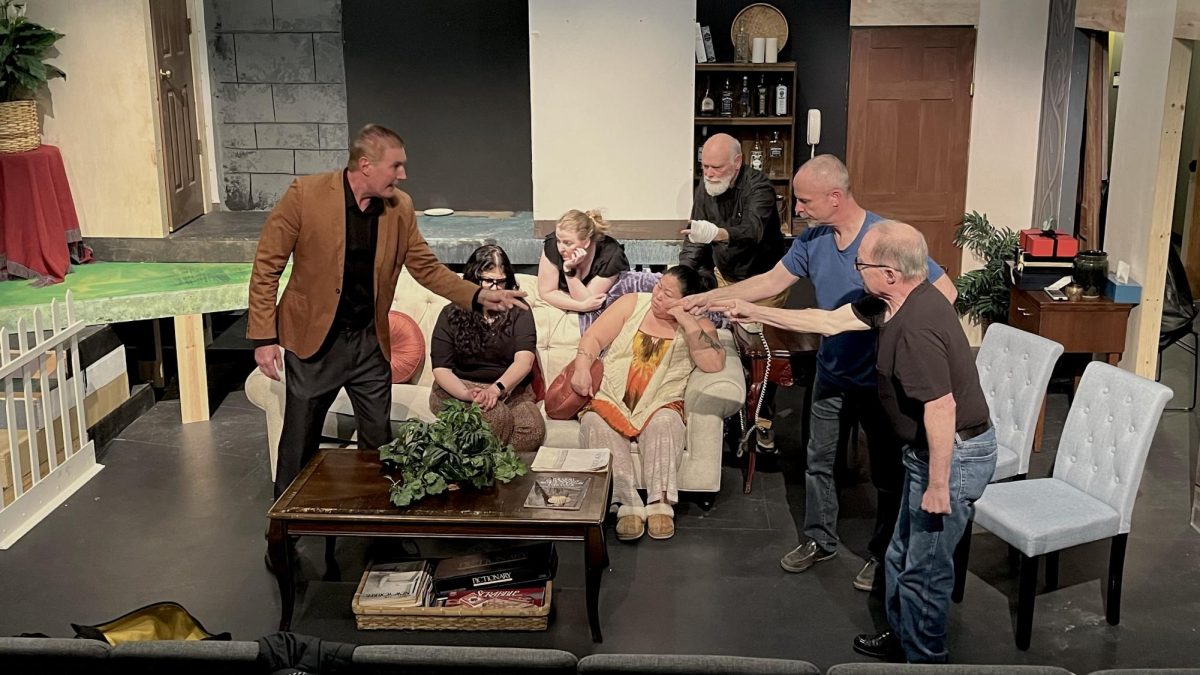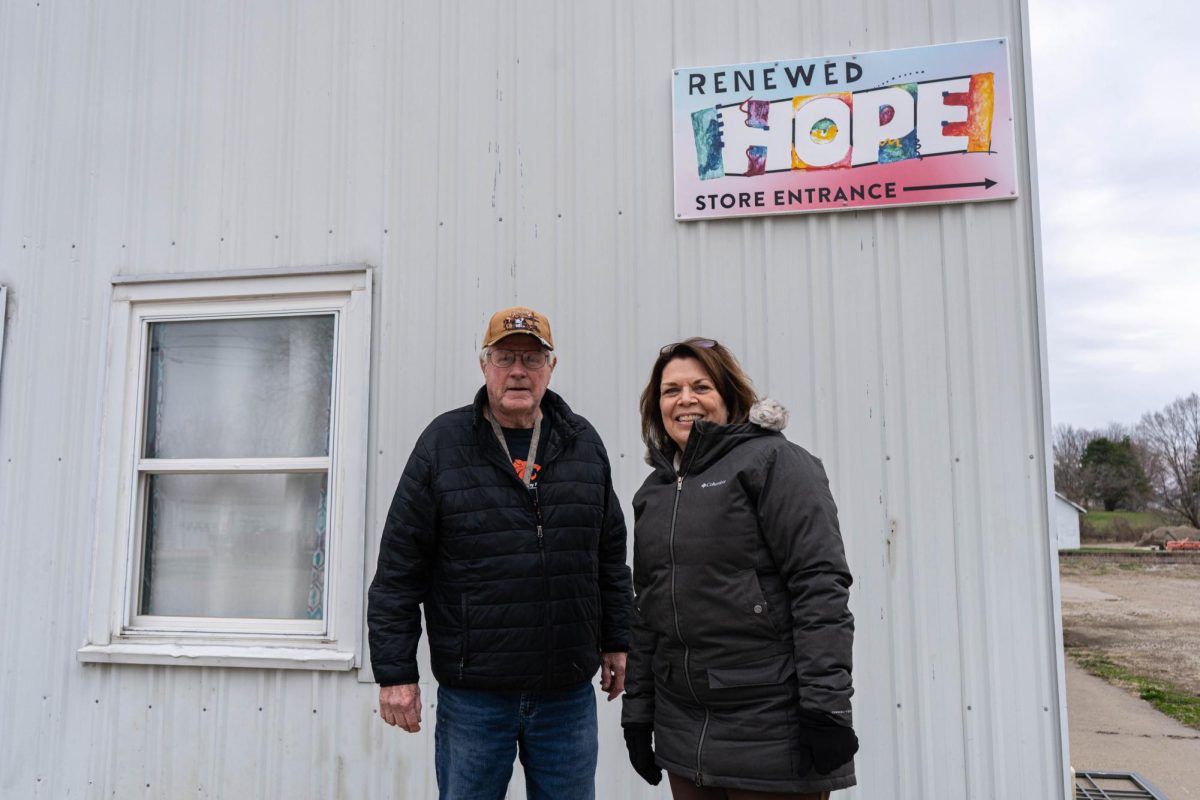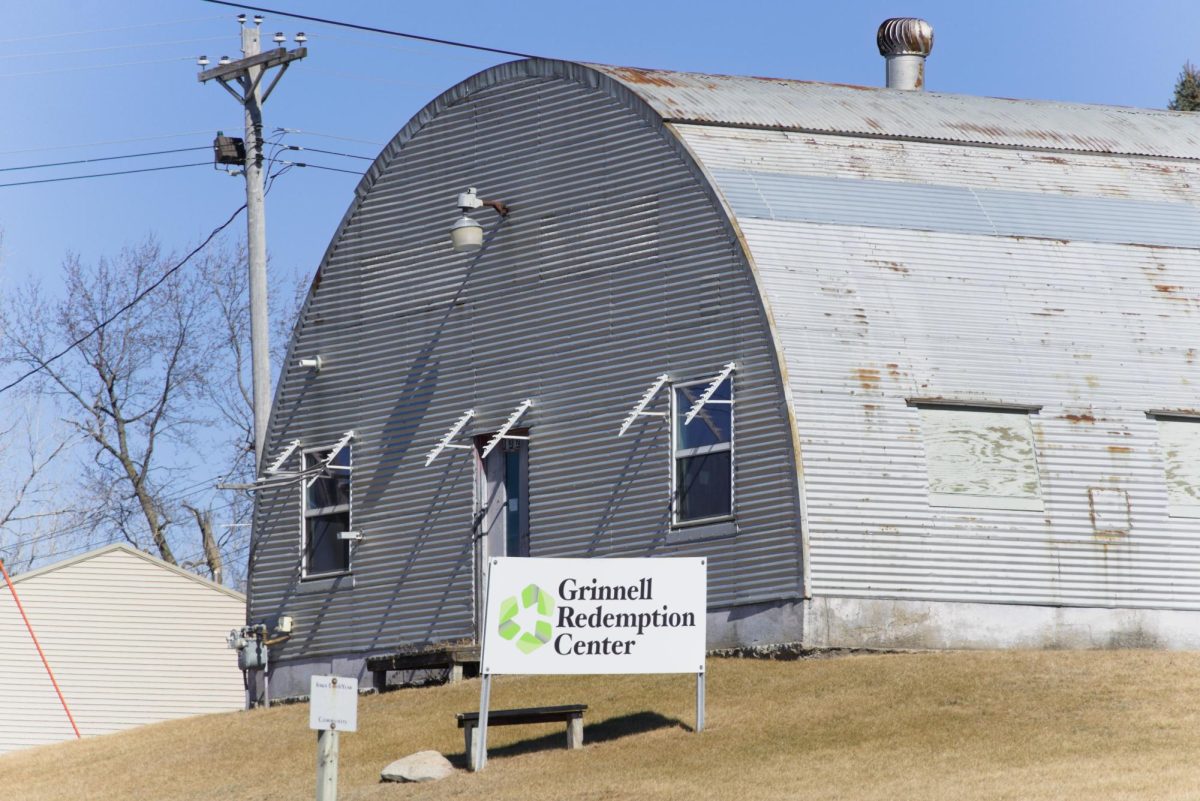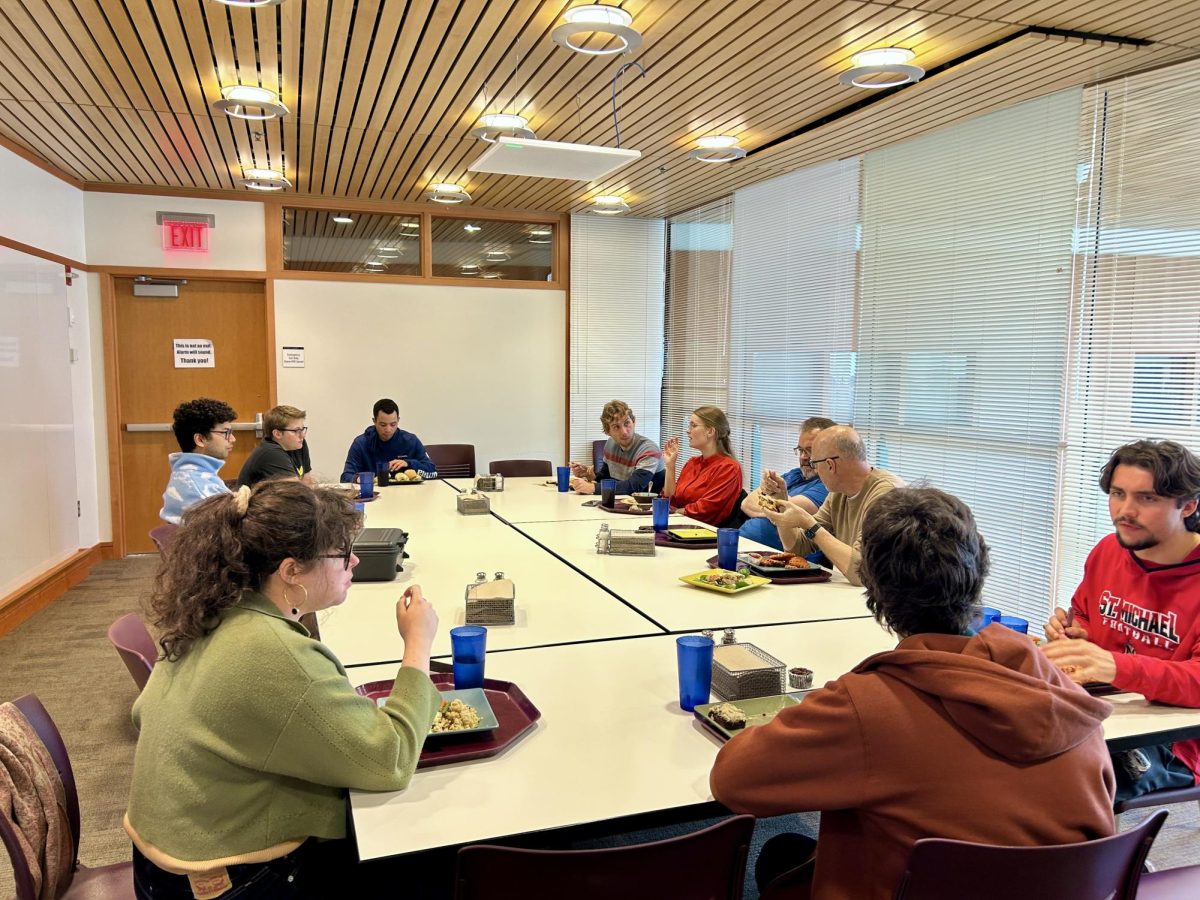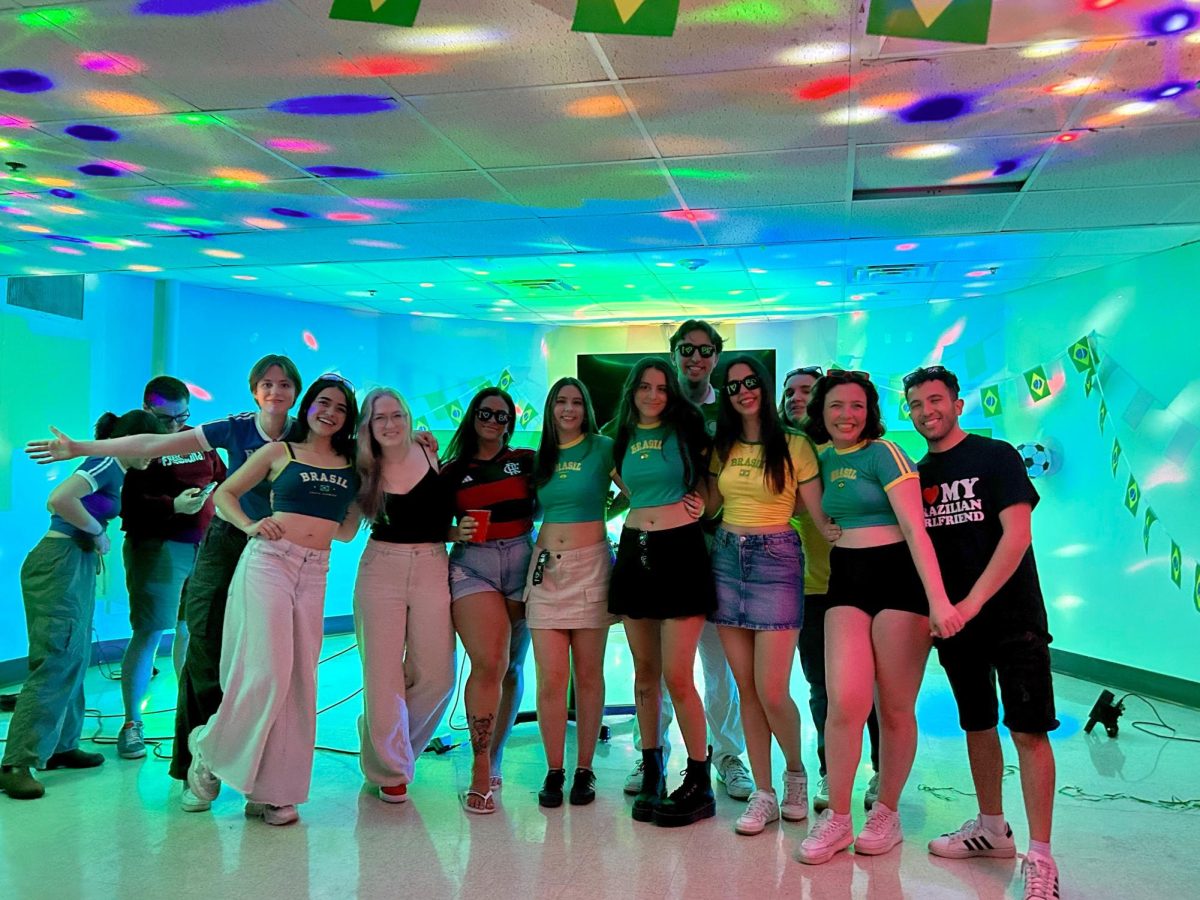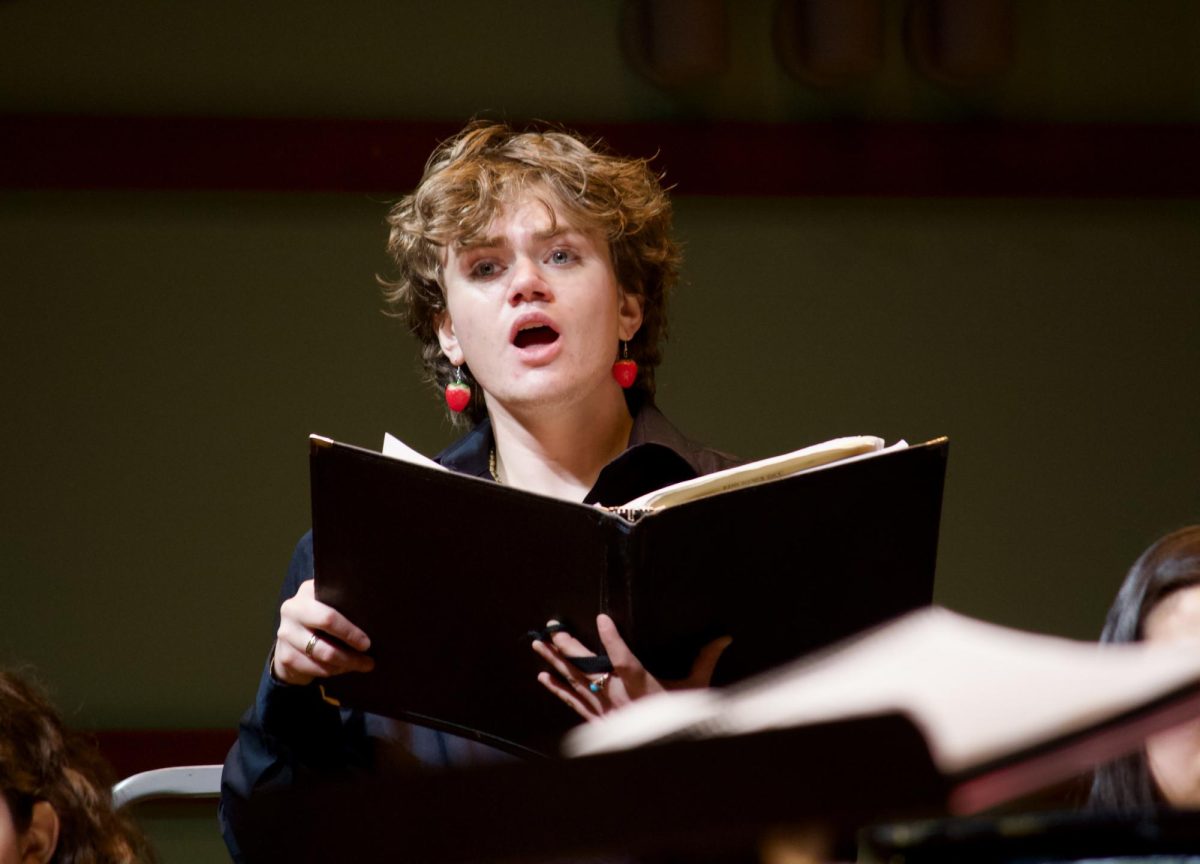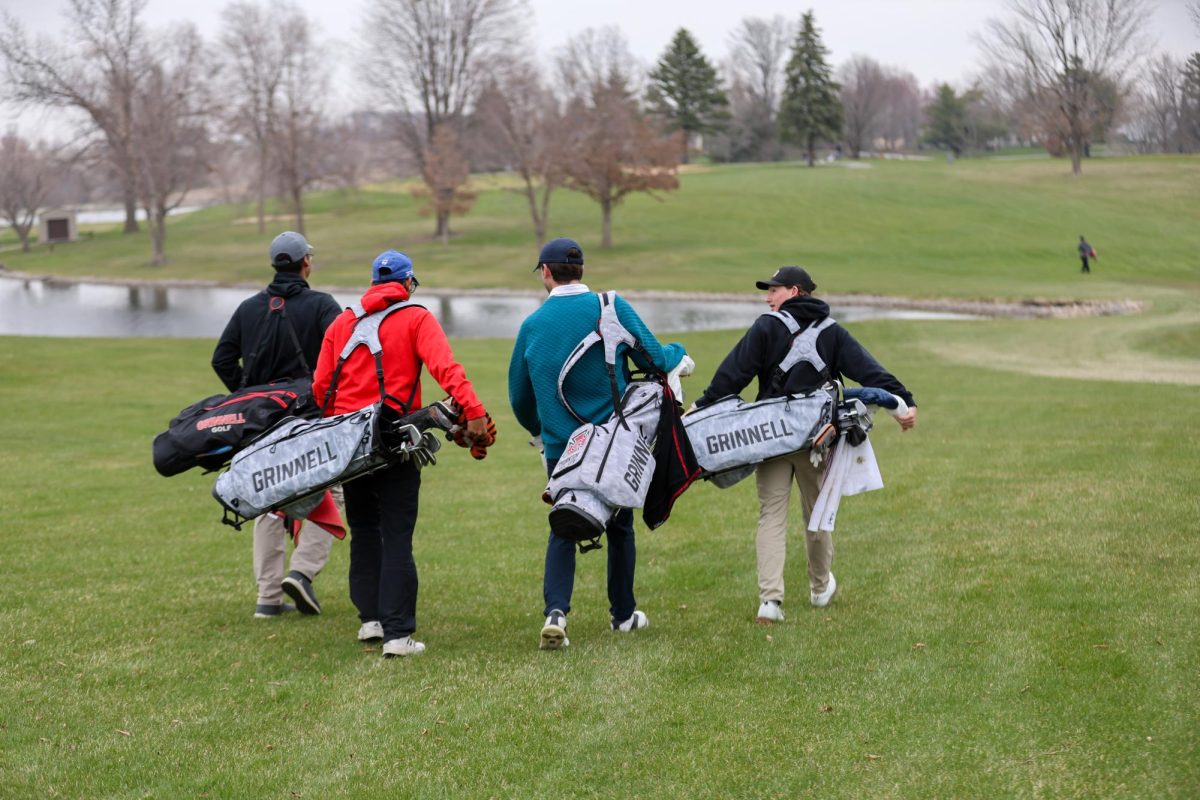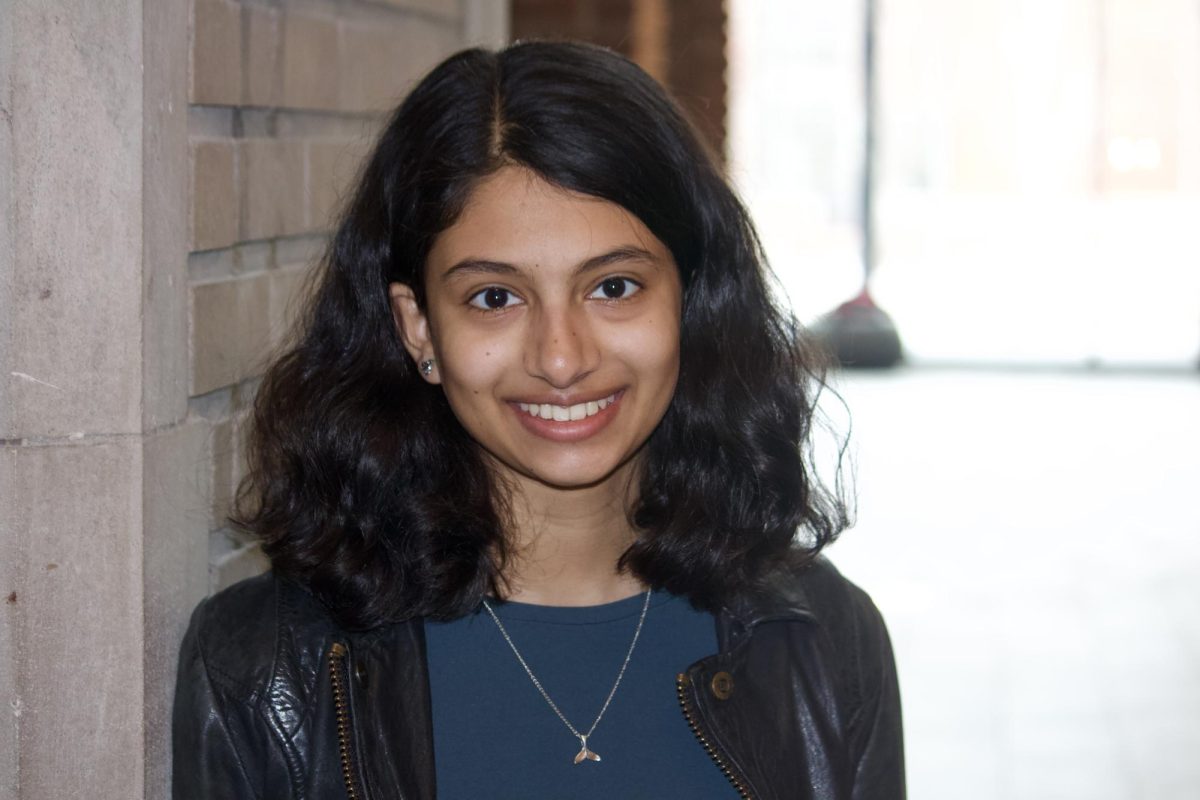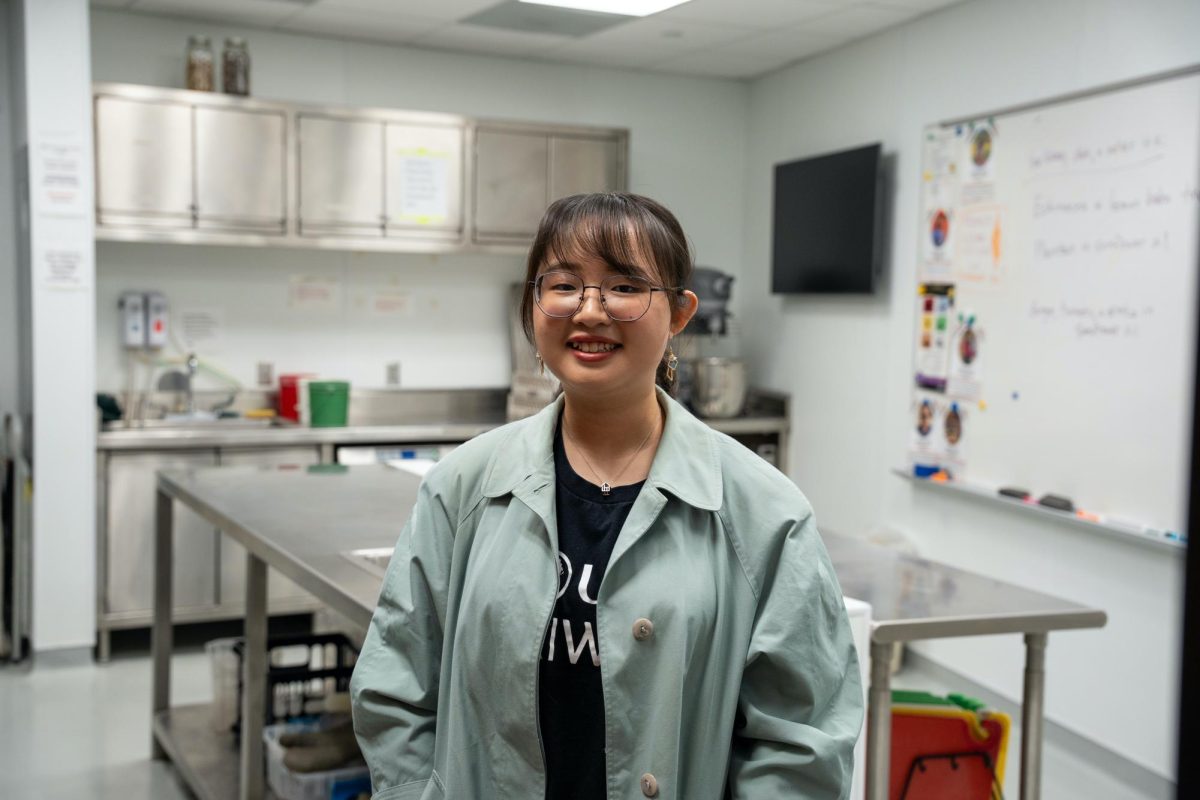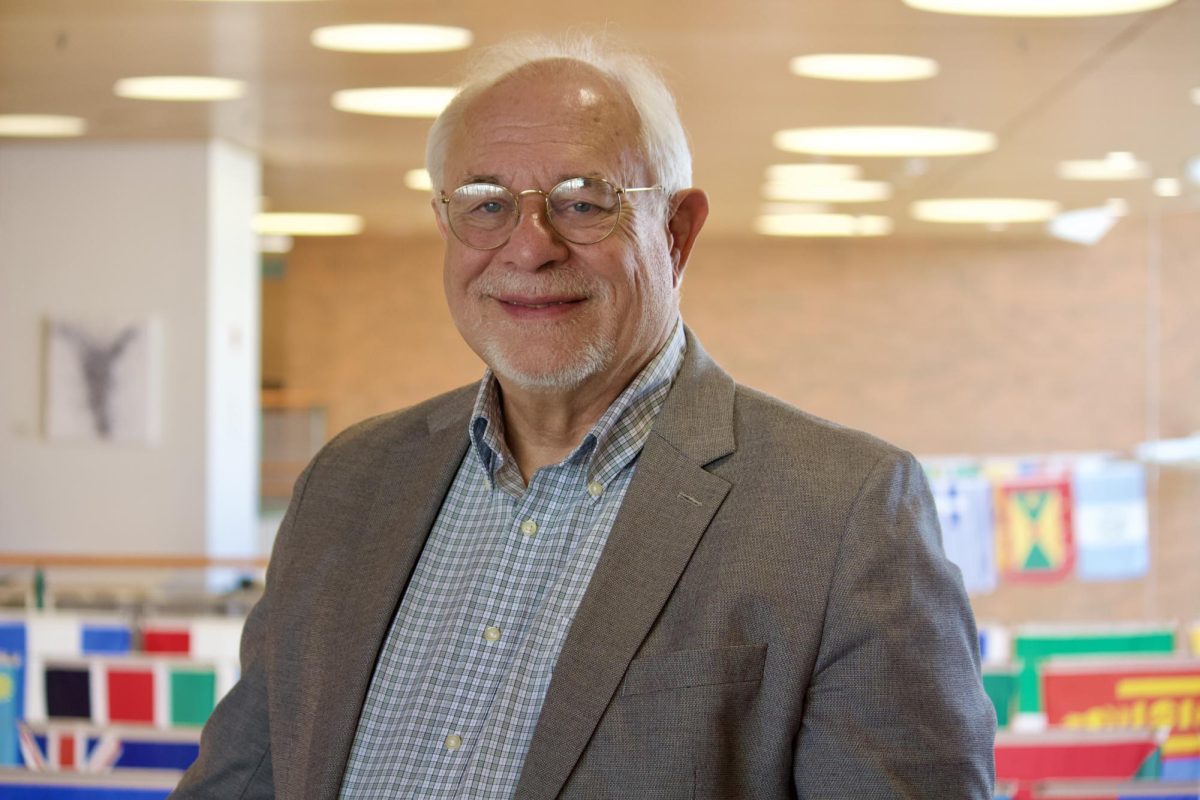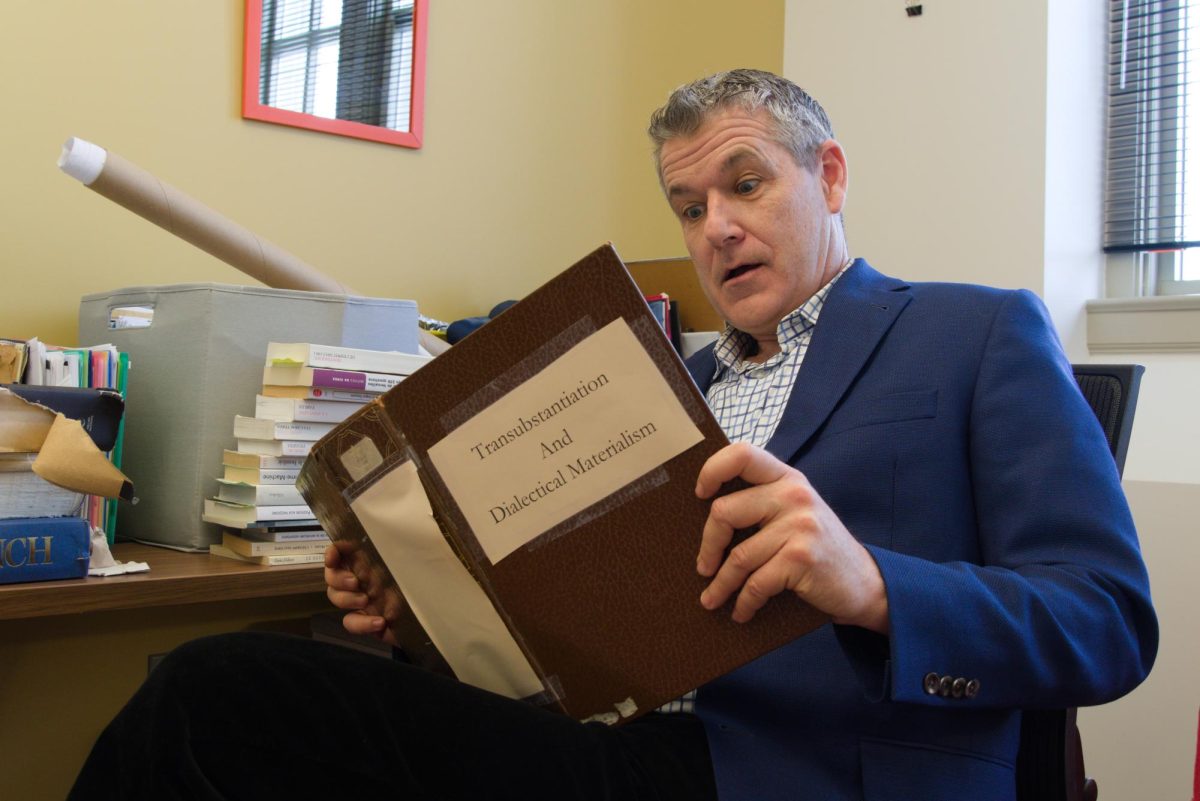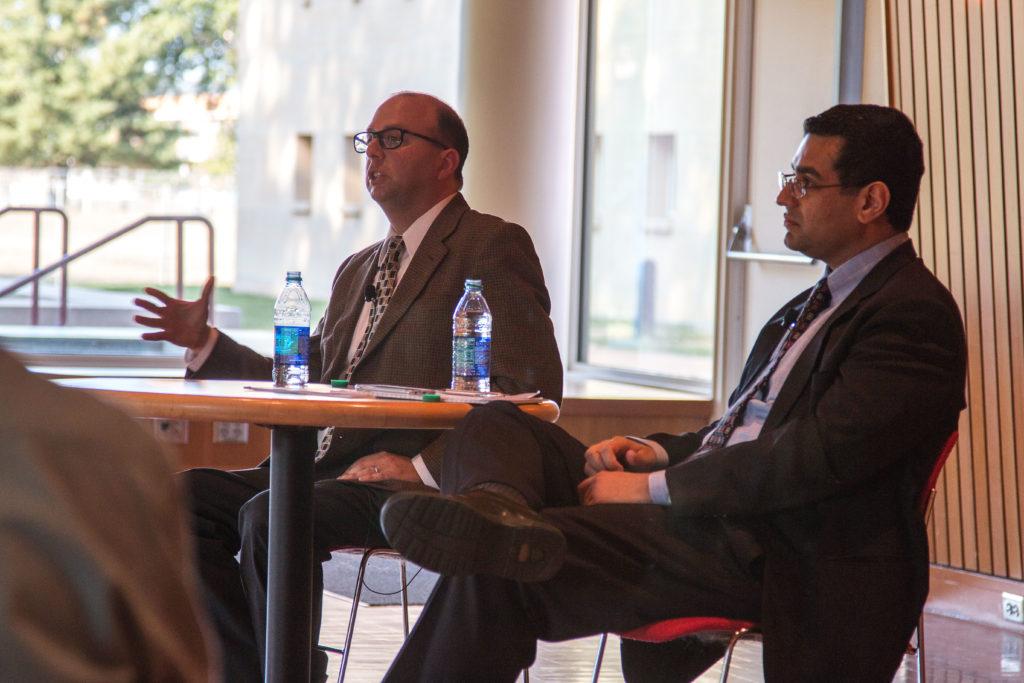
On Sunday, Sept. 17, members of the Grinnell College community gathered to celebrate the 230th anniversary of the signing of the United States Constitution. Complete with mock champagne, a campus event that day featured a legal debate over a pressing question in contemporary politics: can the president pardon himself?
Professor Andy Grewal, Fellow of Law Joseph F. Rosenfield from the University of Iowa and Brian Kalt, professor of law and the Harold Norris Faculty Scholar at Michigan State University, engaged in a back-and-forth conversation regarding the issue of presidential self-pardons.
Kalt laid out his argument in three distinct sections.
“The textual argument is that, if you pardon yourself, that’s not a pardon; the pardon is inherently bilateral. The Latin root of the verb to pardon, ‘perdonare,’ has two other verbs that are derived from it: to condone and to donate, and both of these too, I think you can say the same thing: … you can’t donate something to yourself, it doesn’t make sense.”
Kalt also made arguments against the legality of a self-pardon based on two foundational legal principles: the rule of law, and the requirement that one may not judge one’s own case.
He concluded with a historical argument.
“If the president [abuses the pardon power], he can be impeached and prosecuted. If anyone in that room, [the framers], had thought that the president could pardon himself, that argument would not have gone unanswered, let alone carried the day.”
Grewal often took the role of devil’s advocate, pointing out potential holes in the case against self-pardons. For example, he asked, “How would you deal with the fact that the president is the chief prosecutor of this entire country, and he effectively does get to judge, at least sometimes, whether he should be prosecuted?”
Even though the constitution day event was ostensibly a debate, both the speakers and the audience came to a near consensus that the pardon power may well not legally apply to self-pardons, but that the only remedy to an attempt to apply it in such a way is a political one.
“There are just some things that the law doesn’t have an answer for,” Grewal said.
Since the College receives federal funding, it is required by law to hold Constitution Day programming.
“We’ve had really interesting Constitution Day events over the years, and I thought this year, since we just are always reminded of the way that the constitution is at play, … and is in some degree of contention, I thought it would be interesting to have some constitutional issue that was on the forefront of politics,” said Rosenfield Program director and professor of political science Barb Trish, the event organizer.
Constitution Day 2017 is just the most recent of a long-standing series of lectures and other events sponsored by the Rosenfield Program in Public Affairs, International Relations and Human Rights. In fact, the Rosenfield Program has sponsored more than 10 events each semester since the fall of 1988, almost 30 years ago.
The headline Rosenfield Program events each year are two symposia. This year’s fall symposium, titled “Our Urban Future,” featured former Iowa Governor and U.S. Secretary of Agriculture Tom Vilsack, New York architect Mario Gandelsonas and Margarita Wells, an administrator of the City of Miami Beach.
“The talk that she gave was about how the city of Miami Beach is trying to deal with sea level rise, in terms of designing streets. It was technical in a way that a lot of our speakers aren’t. It was very understandable for everyone, but I thought it was a really interesting approach that sometimes we don’t get in academic settings,” Trish said.
Rosenfield program events are one of the College’s many co-curricular activities, and often serve to supplement and enrich the intellectual journeys of both students and faculty.
“They [Rosenfield Program Events] do intersect in many different ways with courses and academic interests of students and faculty, and we really do try to match those [when picking events],” Trish said.
According to Trish, the Rosenfield Program Committee selects topics for events from various inputs, including applications from students, faculty and academic departments. There are also several student members of the committee which vets, discusses and eventually votes on which events to pursue.
On Monday, Sept. 25, Greg Thielmann ‘72 will give a talk entitled “Unleashing the Dogs of War: US Policy toward Iran and North Korea.” In February, the Rosenfield Program will host a symposium on the relationship between environmental degradation and conflict, and over spring break, the program will sponsor a “Spring Break Study Tour,” an opportunity for students to further explore “Our Urban Future.”


